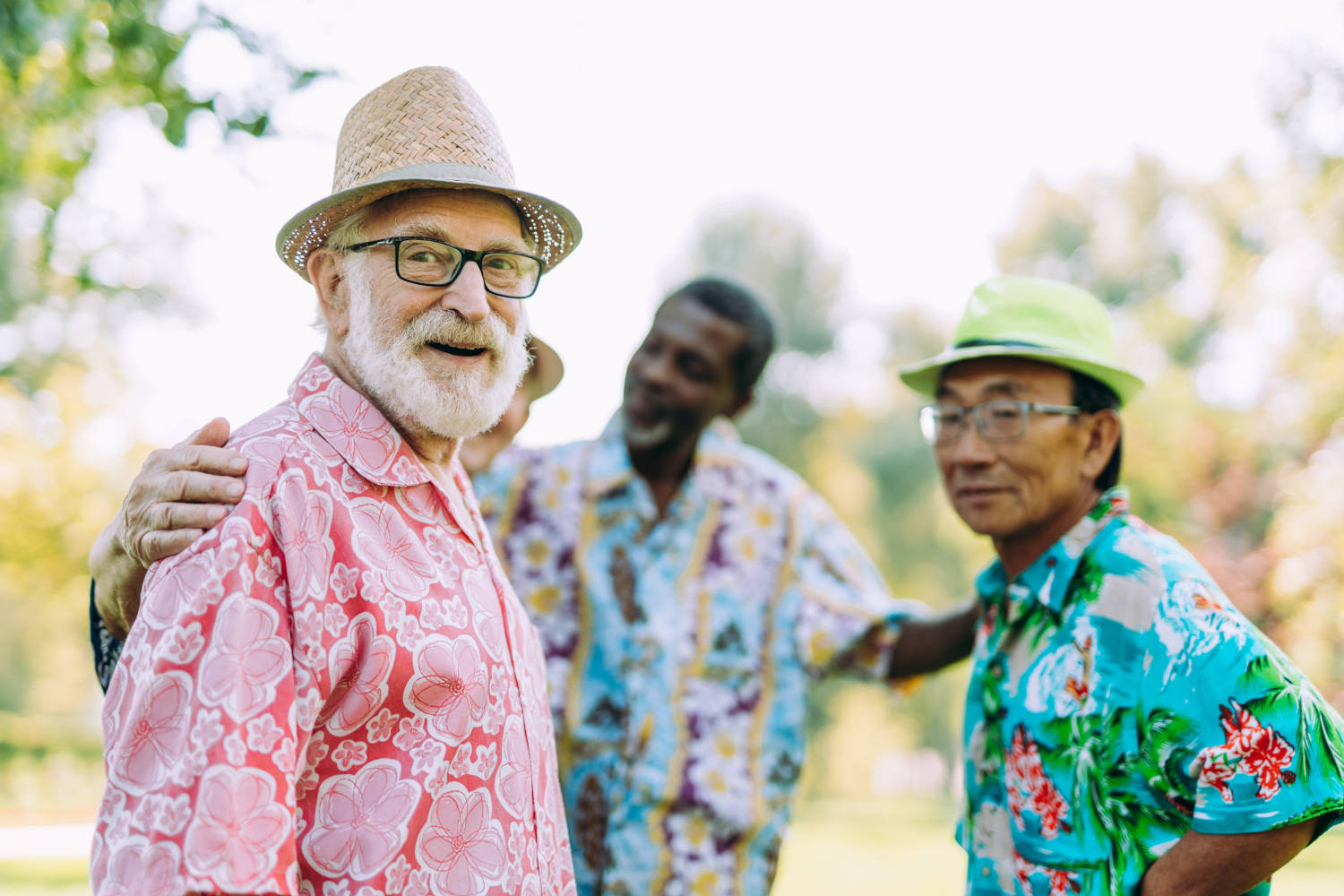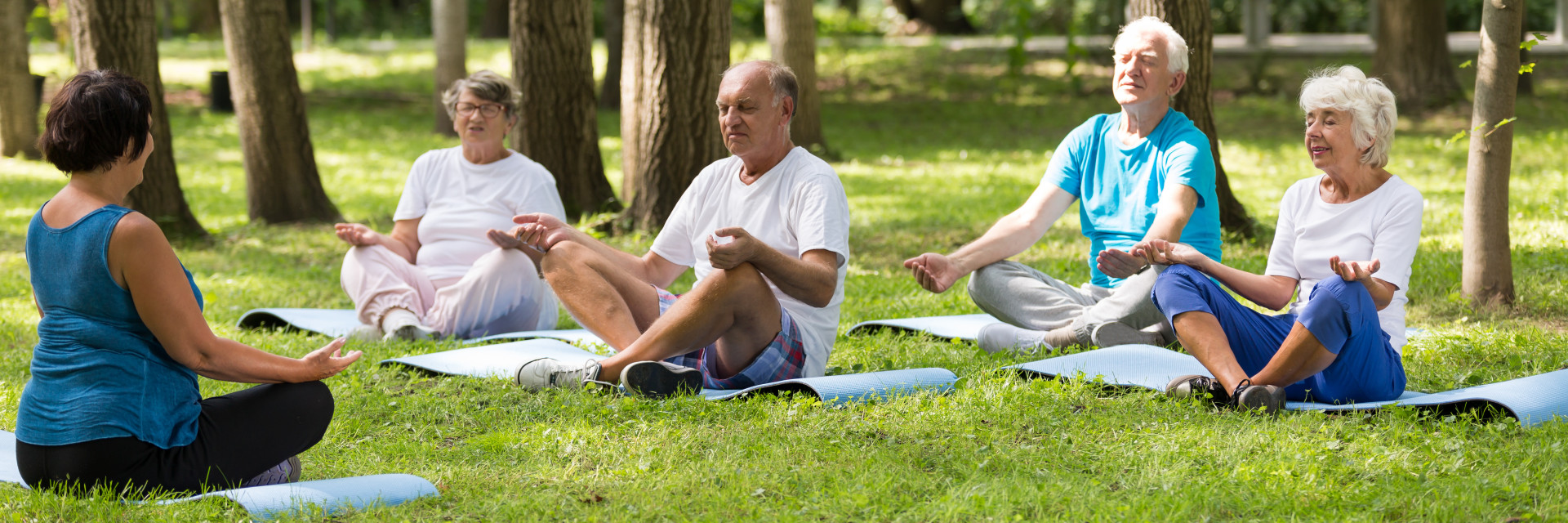
Senior Safety in Changing Weather As the seasons change, it's important for seniors to be aware of the potential risks to their safety. Here are some tips to help seniors stay safe in changing weather: Summer Heat Drink plenty of fluids, even if you don't feel thirsty. Avoid spending too much time in the sun, especially during the hottest hours of the day. Wear loose-fitting, light-colored clothing made from natural fibers like cotton. Take cool showers or baths to help cool down. If you have to go outside, wear sunscreen and a hat to protect your skin from the sun's harmful rays. Winter Cold Dress in layers to trap warm air close to your body. Wear a hat, gloves, and scarf to protect your head, hands, and neck from the cold. Avoid going outside if the temperature is below freezing. If you must go outside, walk slowly and carefully to avoid slipping on ice. Be aware of the signs of hypothermia, such as shivering, slurred speech, and confusion. Spring and Fall Be prepared for sudden changes in temperature and…

Ringing in the New Year as a Senior As the clock strikes midnight on December 31st, many people around the world celebrate the arrival of a new year with parties, fireworks, and resolutions. For seniors, however, New Year's Eve can be a time of reflection and quiet contemplation. While younger generations may be out partying until the wee hours, seniors may prefer to ring in the new year in a more relaxed and comfortable setting. This could involve spending time with family and friends, enjoying a special meal, or simply watching a movie at home. For seniors who live alone, the holidays can be a time of loneliness and isolation. However, there are many ways for seniors to connect with others and celebrate the new year. Many communities offer senior-friendly New Year's Eve events, such as dances, parties, and potlucks. Senior centers and retirement communities also often host special events for their residents. If you are a senior who is looking for a way to ring in the new year, here are a few ideas: Spend time with…

10 Signs Your Elderly Parent Needs Help As we age, our family members may show signs of decline, such as poor hygiene, difficulty managing finances or their home, or unexplained injuries. These signs can vary from person to person, so it's crucial to be vigilant. Although what seems unusual to others may be normal for your parents, it's still important to recognize common warning signs that may indicate a need for in-home senior care. Amy's Helping Hands offers experienced caregivers to assist in such situations. Mismanaged Medications Many aging loved ones take more than one medication, which can cause harm if the medication is not taken as directed. Some signs that your parents are not taking their medications correctly are: Pills on the floor: Finding loose pills outside of their designated containers. Expired or discontinued medications: Holding onto old medications that are no longer needed or effective. Incorrect dosage: Taking the wrong amount of medication, especially if the prescription has been recently…

Ensuring a Safe Summer for Seniors: How In-Home Care in Windsor and Essex County Can Help Summer is a time for enjoyment and relaxation, but for seniors, it also brings unique challenges and risks. With the temperatures rising in Windsor and Essex County, ensuring the safety and well-being of our elderly loved ones is paramount. Amy's Helping Hands provides comprehensive in-home senior care that can help mitigate summer-related risks, allowing seniors to enjoy the season safely and comfortably. Here’s how our services can help. Hydration and Nutrition Management Dehydration and nutritional deficits are common concerns for seniors during the summer. Our caregivers ensure that seniors are drinking enough water throughout the day and eating well-balanced meals to sustain their energy levels and overall health. We also monitor for signs of dehydration or malnutrition, which can be particularly dangerous during the hotter months. Proper Indoor Climate Control Extreme heat can be hazardous, especially for seniors who may have chronic health conditions that make temperature…

Activities for Seniors to Find Meaning and Purpose in Everyday Life As we age, the pursuit of meaning and purpose in our daily lives becomes increasingly important. For seniors, maintaining an active and engaged lifestyle can be key to overall well-being and happiness. Amy’s Helping Hands, a dedicated senior care service in Windsor, understands this need and offers a variety of enriching activities designed to spark joy, foster connection, and ignite a renewed sense of purpose in the golden years. Nurturing Mind, Body and Soul Amy’s Helping Hands believes in a holistic approach to senior care, focusing on activities that stimulate the mind, body and soul. Mindful Moments: Gentle yoga and meditation sessions promote relaxation, reduce stress, and enhance mental clarity. Creative Expression: Art therapy classes offer seniors a safe space to explore their creativity, express emotions, and connect with their inner artist. Lifelong Learning: Engaging workshops and lectures on various topics keep seniors’ minds active and curious. Social Connections: Group…

Keeping Seniors Safe: How In-Home Care in Windsor Prevents Falls and Enhances Home Safety For seniors in Windsor, Ontario, maintaining a safe home environment is essential for their well-being and independence. However, as age-related challenges arise, so do concerns about falls and household obstacles. Amy's Helping Hands understands the importance of creating a safe space for seniors to thrive. In this article, we'll explore how our in-home senior care services can prevent falls and address household obstacles, providing peace of mind for both seniors and their families. Helping Make Seniors Safer with In-Home Senior Care in Windsor At Amy's Helping Hands, our caregivers analyze the fall risks for each senior client. Our trained caregivers evaluate the home environment to identify potential hazards such as slippery floors, uneven surfaces, and poor lighting. By addressing these risks proactively, we create a safer living space for seniors, reducing the likelihood of falls and accidents. Assistance with Daily Activities Many falls occur while seniors are performing…



















